After several setbacks, Boeing will try again to launch its crewed Starliner on Saturday
- The Boeing Starliner is set to launch Saturday afternoon from Kennedy Space Center in Florida.
- The mission has been delayed nearly a month due to an oxygen leak on the rocket and then a helium leak on part of the spacecraft.
- The two NASA astronauts flying the commercial crew mission are Barry "Butch" Wilmore and Sunita "Suni" Williams.
The highly-anticipated first crewed mission of Boeing’s Starliner appears poised to finally take off on Saturday afternoon as the aeronautics company seeks to prove the spacecraft's capabilities to NASA.
A series of technical issues waylaid the launch of the CST-100 Starliner, which was initially fueled up and ready for liftoff on May 6 before the mission was scrubbed. The Starliner's crew, Barry "Butch" Wilmore and Sunita "Suni" Williams, were even aboard the capsule before they had no choice but to exit and head back to their quarters.
Wilmore and Williams, both former Navy pilots before they joined NASA, returned to Houston on May 10 to spend extra time with their families as mission engineers worked to fix the issues ailing Starliner.
The launch was delayed again later in May as a result of a helium leak from the capsule's propulsion system. But at long last, the spacecraft is apparently ready to head to the International Space Station for about a week before the crew returns to Earth.
Here's what to know about the launch and Starliner, which Boeing hopes will soon compete with Elon Musk's SpaceX capsule for NASA missions to low-Earth orbit.
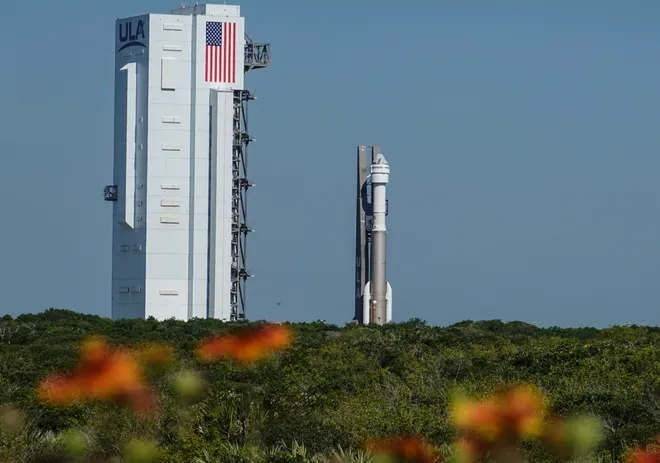
Graphics:Starliner joins Dragon in expanding American space access
Why were past launches scrubbed, delayed?
The mission has been delayed nearly a month due first to an oxygen leak on the rocket and then a helium leak on part of the spacecraft.
The United Launch Alliance, which manufactured the rocket, said in a statement that trouble with a valve in the rocket's upper stage prompted engineers to scrub the initial launch on May 6. Mission programmers initially requested a delay to May 17 to have time to replace a pressure regulation valve on the rocket's liquid oxygen tank, NASA said.
The team was able to replace the valve and re-pressurize the system, but then engineers encountered another obstacle: a small helium leak in Starliner's service module. The issue required the launch date to be pushed back once again, according to an update from Boeing.
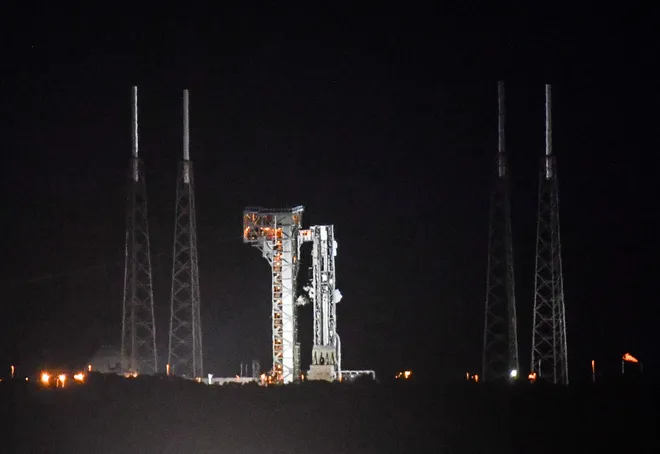
Helium, which is not combustible or toxic, is used in spacecraft thruster systems to allow the thrusters to fire.
Crews investigated and created a workaround to ensure the safe return of astronauts even in the most extreme scenarios, Florida Today reported.
As of this week, NASA and the space station both decided to continue with the launch without repairing the helium leak.
While the fix would require replacing a patch only roughly the size of a button, it would be a complicated process for a leak that impacts only one of 28 thrusters, reported AFP.
"We can handle this particular leak if that leak rate were to grow even up to 100 times," said Steve Stich, manager of NASA's Commercial Crew Program, reported AFP. Instead, teams will simply monitor the leak upon launch.
What is the Boeing Starliner?
Starliner is intended to be a vehicle that can ferry astronauts to and from the International Space Station as NASA pivots to more partnerships with private industry.
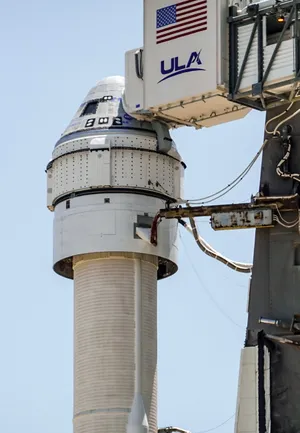
As part of NASA’s commercial crew program, Boeing was awarded $4.8 billion, while its competitor, SpaceX, was awarded $3.1 billion in 2014 to develop their respective spacecraft, Florida Today reported. Under NASA's more ambitious commercial lunar program, it's also paid SpaceX $2.9 billion to develop the first commercial human lander for the agency's Artemis moon missions and eventually trips to Mars.
SpaceX, whose Dragon spacecraft flew its first human mission in 2020, recently saw its Crew-7 return to Earth after nearly 200 days aboard the International Space Station. The eighth crew comprised of three NASA astronauts and one cosmonaut launched on March 3 and docked on March 5 to await the arrival of Boeing's Starliner capsule.
The Starliner was designed to accommodate no more than seven passengers for missions to low-Earth orbit. For NASA, the capsule is intended to carry four astronauts along with a mix of cargo and other scientific instruments to and from the space station.
If the mission is a success, NASA will begin the final process of certifying Starliner and its systems for crewed rotation missions to the space station, according to the U.S. space agency.
Who are the NASA astronauts crewing the Starliner?
The two NASA astronauts flying the commercial crew mission are Barry "Butch" Wilmore and Sunita "Suni" Williams. Both are Navy test pilots who have flown in space twice, according to Florida Today, part of the USA TODAY Network.
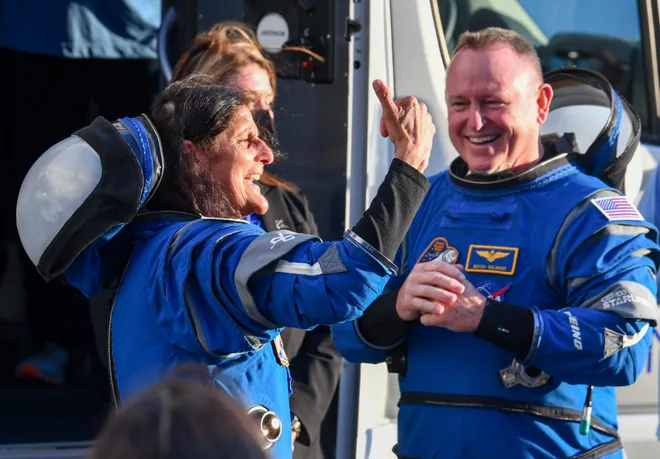
◾ Williams, 58, is a former Naval test pilot with experience flying over 30 different aircraft. Selected as an astronaut in 1998, she has logged 322 days in space over two missions since her first flight in 2007.
◾ Wilmore, 61, is a retired Navy captain who completed 21 combat missions during Operation Desert Storm before joining NASA in 200. Since then, he has logged 178 days in space after his first trip to orbit in 2009.
Once the Starliner launches and reaches the International Space Station, the astronauts are scheduled to spend a little more than a week testing the spacecraft and its subsystems before they board the capsule for a return trip to Earth. The craft will then land in the American Southwest using parachutes that will slow it down to 4 mph before inflating large airbags.
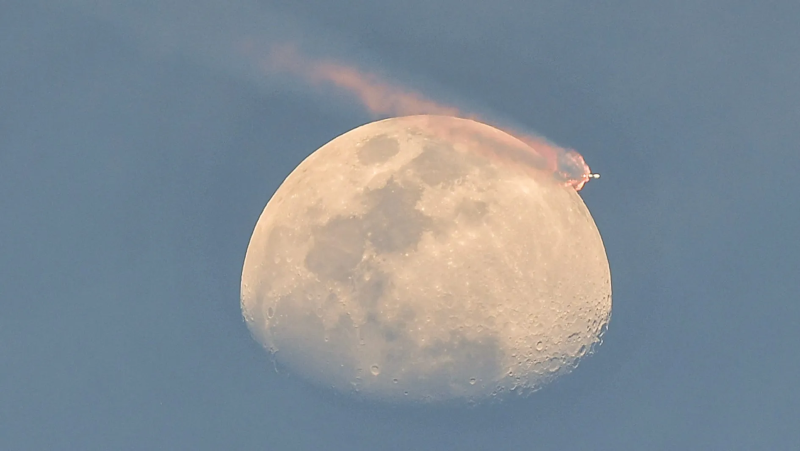
How to watch the Boeing Starliner launch
Boeing and NASA are targeting 12:25 p.m. EDT Saturday for Starliner's launch from Kennedy Space Center in Florida. The capsule will fly to space on top of an Atlas V rocket manufactured by the United Launch Alliance.
NASA will provide live coverage beginning at 8:15 a.m. EDT on NASA+, NASA Television, the NASA app, the agency's YouTube page and its website. A postlaunch news conference is also planned.
Expect more coverage when the Starliner is expected to dock at the forward-facing port of the International Space Station's Harmony module at approximately 1:50 p.m. Sunday.
Eric Lagatta covers breaking and trending news for USA TODAY. Reach him at elagatta@gannett.com
Contributing: Mary Walrath-Holdridge, USA TODAY
Disclaimer: The copyright of this article belongs to the original author. Reposting this article is solely for the purpose of information dissemination and does not constitute any investment advice. If there is any infringement, please contact us immediately. We will make corrections or deletions as necessary. Thank you.





